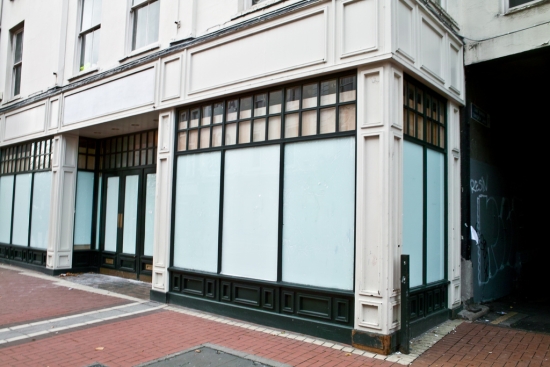It is no secret that high street shopping has become something of a hark-back to days gone by. The idyllic market scene, with butchers, greengrocers and DIY stores on every corner, is no more and instead consumers rely on supermarkets and chain stores to purchase the goods necessary for day to day life.

However, while internet shopping has taken a large share of the blame for this, it is possible to trace the decline of the high street back before the emergence of e-retailers such as Amazon and eBay.
In order to fully understand the reasons for the rise of “ghost towns” – and find a way to reverse this process – the migration of the UK’s largest retailers from the high street to out of town retail parks and shopping centres must be taken into account.
This week, it was announced that Hertsmere Borough Councillors have granted planning permission for a large Debenhams store on Theobald Street in Borehamwood.
Hertsmere Mayor, Councillor Morris, hopes that the announcement will encourage more people to “shop locally” in a bid to rejuvenate nearby Shenley Road, as a total of 17 shops currently lie empty in the town’s retail district.
Councillor Morris has previously pledged to assist local retailers by breathing life back into the high street, and is currently working on a presentation outlining how the council can meet this aim. Yet while he admits that the Debenhams store will greatly assist this process, he realises this is only the beginning.
He says; “It is an exciting development but that is only scratching at the surface of how we should go about reviving the high street.
“In terms of how the high street needs to change, there is more to be done – I will be announcing my plans shortly.”
The advent of out of town retail parks saw many large retailers flee the high street. With the greater commercial property space and a significantly higher number of parking spaces on offer, retailers were able to to massively increase their recorded footfall.
Parking remains one of the key issues facing small retailers in town centres, as local councils now charge excessive amounts for both on and off-road parking– something high street campaigners believe is putting consumers off their local town centres.
The new Debenhams has been granted permission to extend the car park by 15 spaces within the service yard area; yet when compared to a retail park, which generally offers free parking with a choice of hundreds of spaces, this pales into insignificance. Viewed from this angle, perhaps it isn’t surprising that growing numbers have fled the high street to take advantage of a larger consumer pool.
Should local councils choose to address this issue, and simultaneously encourage big brands to move into deserted high street properties, there is a strong chance that the decline of the high street can be halted and even reversed. However, until the needs of consumers can be met, small retailers will continue to suffer as a result of the absence of key players in the UK retail industry.
Would a cut in parking costs, or the provision of free parking, encourage you to shop on the high street rather than visiting out-of-town retail parks? Do you believe consumers follow big brands wherever they choose to locate?
Previous Post
Canary Wharf of the Railways Planned for HS2 Hub